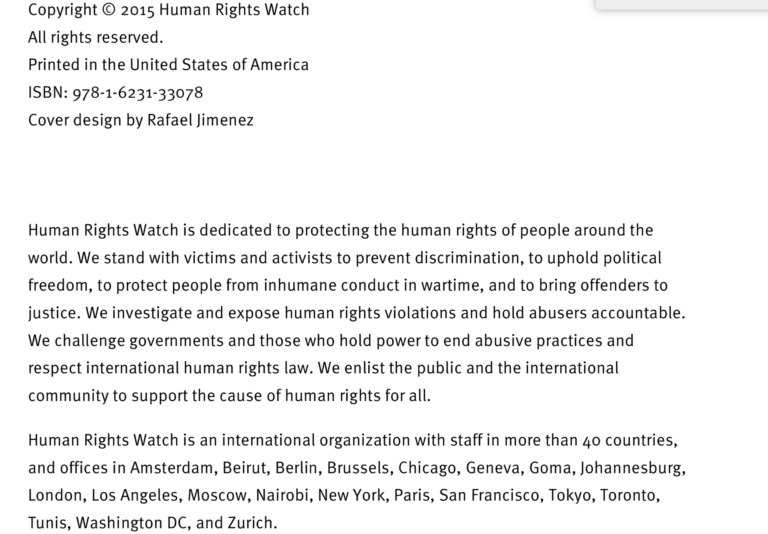In July 2015, Human Rights Watch interviewed 26 children, ages 16 and 17, who worked on tobacco farms in North Carolina that summer. Almost all of the children inter- viewed—25 out of 26—said they experienced sickness, pain, and discomfort while working. Most children inter- viewed experienced the sudden onset of at least one spe- cific symptom consistent with acute nicotine poisoning while working in tobacco farming in 2015, or after return- ing home from working in tobacco fields, including nausea, vomiting, headaches, dizziness, and lightheadedness.
Many children also reported either working in or near fields that were being sprayed with pesticides, or re-en- tering fields that had been sprayed very recently. A num- ber of children reported immediate illness after coming into contact with pesticides.
Under international law, a child is anyone under the age of 18. International labour standards state that children under 18 should be prohibited from hazardous work, de- fined as “work which, by its nature or the circumstances in which it is carried out, is likely to harm the health, safety or morals of children.”
Methodology
Human Rights Watch conducted field research for this report in eastern North Carolina in July 2015. Human Rights Watch interviewed 33 children, ages 13 to 17, who worked on tobacco farms in North Carolina in 2015, 18 boys and 15 girls. Of those, 26 were 16 or 17 year olds. Five of the children interviewed were also interviewed by Human Rights Watch in 2013.
In addition, Human Rights Watch interviewed nine other individuals, including parents of farmworker children, tobacco growers, health experts, and outreach workers. In total, 42 people were interviewed for this report. This report follows extensive research by Human Rights Watch in 2013 on hazardous child labour in United States tobacco farming.1
Human Rights Watch identified interviewees through outreach in farmworker communities, and with the assistance of a nongovernmental organization serving farmworker families. Some individuals approached declined to be interviewed.
Interviews were conducted in English and Spanish, based on the interviewee’s preference. Human Rights Watch interviewed most children individually, though some children were interviewed in pairs. When possible, Human Rights Watch held interviews in private, though in a few cases, interviewees preferred to have another person present. No interviews were conducted in the presence of workers’ employers.
Human Rights Watch informed all interviewees of the purpose of the interview, its voluntary nature, and the ways in which the information would be collected and used. For interviews taking place during mealtimes, Human Rights Watch provided modest meals. Human Rights Watch did not provide anyone with compensation in exchange for an interview. Participants gave oral informed consent to participate and were assured anonymity. All names of children and parents have been changed to protect their privacy, confidentiality, and safety, and to protect them from potential retaliation.

